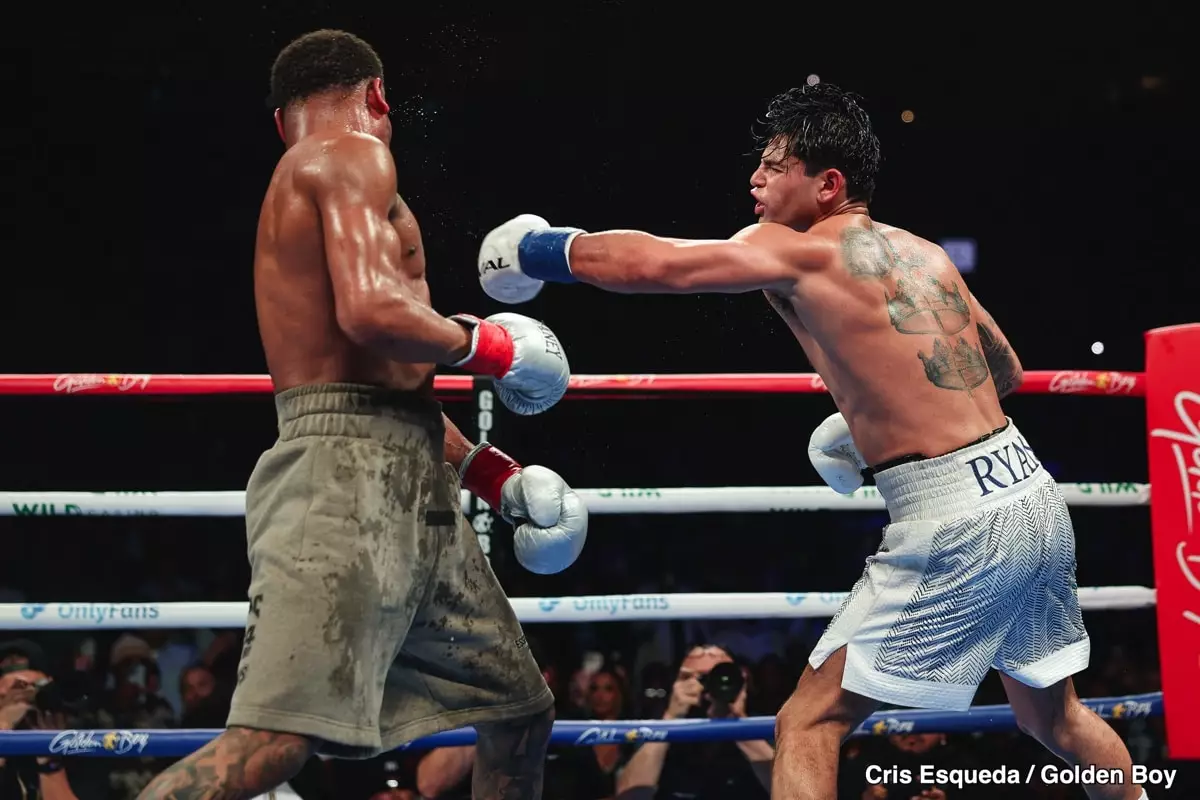The world of boxing is often characterized by its unpredictable nature, particularly when it comes to the decisions made by fighters and their respective teams. Recently, the decision by Ryan Garcia and Devin Haney to engage in tune-up fights before a much-anticipated rematch has stirred debate among fans, analysts, and insiders alike. This article delves into the implications of these choices, scrutinizes the potential risks involved, and evaluates what this means for each fighter’s future aspirations.
A tune-up fight is, in essence, a preparatory match that allows fighters to regain their confidence and sharpen their skills after a previous loss or extended layoff. For Ryan Garcia (24-1, 20 KOs), the choice of opponent seems deliberate; he’s set to face Rolando “Rolly” Romero, a fighter best known for his knockout loss to Isaac Cruz. If Garcia can navigate this bout successfully, it could serve as a confidence booster and a stepping stone toward a bigger fight with Haney later on. However, there lurks an omnipresent risk: any slip-up against a perceived weaker opponent can jeopardize future high-stakes matchups and tarnish a fighter’s reputation.
On the other hand, Devin Haney (31-0, 15 KOs) finds himself in a more precarious situation. He will square off against former unified 140-pound champion, Jose Ramirez (29-2, 18 KOs), a battle that could be immensely dangerous, especially in the aftermath of his last defeat to Garcia. A loss for Haney could be catastrophic, not only affecting his immediate career trajectory but also his reputation within the sport. Given this context, the decision to pursue a tune-up fight leaves many questioning whether it was truly a strategic move or an indication of vulnerability.
The Role of Promoters and Managers
Promoters and teams play a pivotal role in shaping a fighter’s career, influencing decisions regarding matchups and timing. In the case of Garcia and Haney, the apparent reluctance to face each other immediately raises eyebrows. Turki Al-Sheikh, a significant figure in the boxing promotion landscape, is known for pushing for swift match negotiations, often facilitating major bouts without delay. The absence of an immediate Garcia-Haney clash indicates that either team opted for a cautious approach, possibly fueled by the fear of a devastating loss.
Ade Oladipo’s comments serve as a poignant reminder that the blame for the current situation might not solely rest on the shoulders of the fighters but rather on the decisions made by their teams. While both Garcia and Haney have compelling narratives and skills that could elevate any matchup, their respective teams appear hesitant. This raises philosophical questions surrounding the ethics of protecting a fighter’s brand versus fostering competitive, exciting matchups for fans.
Are Tune-Ups a Good Idea for Fighters?
From a strategic standpoint, the concept of tune-up fights is hotly debated among boxing aficionados. Some argue that a tune-up allows fighters to reclaim their footing after setbacks, offering a chance to reset and refocus. Others contend that such fights are inherently risky skydives into uncertainty, as demonstrated by Haney’s upcoming bout against the formidable Ramirez. If a fighter is on the backfoot following a loss, facing a powered opponent could backfire spectacularly.
Haney’s situation exemplifies this conundrum. He aims to reestablish his credibility after being humbled in the ring against Garcia, but he risks further diminishing his standing should he lose to Ramirez. The anxiety surrounding this match underscores the tension between the desire for redemption and the reality of risk. Moreover, the notion of “rolling the dice” in high-stakes boxing rings is inherently dangerous, where the fighters risk not just their records but their futures in the sport.
As the boxing community continues to observe the unfolding events, the importance of mental fortitude and reputation cannot be understated. The hesitance of Garcia and Haney to immediately engage in a rematch creates a chilling effect, suggesting a reluctance to confront the realities of competition. It presents a cycle of avoidance that could inhibit both fighters from climbing the ranks toward financial and professional success.
In essence, while both Garcia and Haney embark on their respective journeys to reclaim lost momentum, the implications of these choices echo far beyond the ring. The decisions that these boxers make today will shape their legacies tomorrow. The suspense surrounding their upcoming bouts encapsulates the beauty and brutality of boxing – where triumph and tribulation go hand in hand, and each match holds the potential to redefine a fighter’s career.

